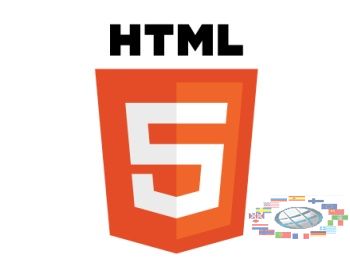HTML 5
World of translation : Technical documentation
7 Nov 2012, 18:22
1
4275

HTML 5 - not just a markup language, but a completely new platform for creating web applications which use animation, audio, graphics, video, etc. In comparison with XHTML, in HTML 5 appeared new elements and attributes. For today HTML 5 has a status of the recommendation, and new tags now are recognized only by some of the latest versions of browsers: Google Chrome, Firefox.
| Tag | Description |
| <article> | Is used to set the content of website: blog and forum posts, articles, news, etc. |
| <aside> | Is used to set a block, which is located beside the main content. This block is often called the sidebar. |
| <audio> | This tag adds, plays and gives you full control under audio recording on the web page. |
| <canvas> | This tag creates on the web page area where through JavaScript, you can draw pictures, create animation games, etc. |
| <command> | This tag creates a command in the form of normal button, switch, or check box. |
| <datalist> | This tag creates a list of options, which you can then choose while typing text in a text field. |
| <details> | It is used to store information, which can be hidden or shown only on demand. |
| <figcaption> | This tag contains a description of the <figure> tag. <figcaption> must be either the first or the last element in the group. |
| <figure> | Is needed to group elements, for example, images and signatures to them. |
| <footer> | This tag specifies the footer of the website or its partition, you can place here: date of document's creation, author's name, contact or legal information. |
| <header> | Specifies the header of the website or its partition - there are often placed headings. |
| <hgroup> | It is used to group page titles or their chapters. Heading tags <h1>, <h2>, <h3>, <h4>, <h5>, <h6> are placed inside this tag. |
| <keygen> | Is needed to generate a pair of keys: a public and private, which in turn are required to create and verify digital signatures, for encryption and decryption of data. |
| <mark> | It marks the text on the web page as a highlighted. This text is identical to the regular text on the same page. In the Firefox and Google Chrome browsers the background color of the text inside the <mark> tag is highlighted in yellow. |
| <menu> | Is needed to display a list of menu items. As well as the tags <ol> and <ul>, <menu> tag is formed with <li> tags . |
| <meter> | Is needed to display the value in a certain range (the pressure, the number of search results, the volume of liquid, etc.) |
| <nav> | Sets navigation under the website. In the case when several blocks of links are located on the web page, then in the <nav> tag you should place the most important links. Is allowed to place a few <nav> tags on the one page, but is not permitted to place it inside the <address> tag. |
| <output> | Shows the area of the page, which will display information, in most cases by using scripts. |
| <progress> | Is needed to display a progress of performance of some task. The very change of value occurs through JavaScript. |
| <rp> | Is used to display text in browsers, which do not support the <ruby> tag. Accordingly, in all other browsers the text, placed in a container <rp></rp>, will not be displayed. Tag <rp> should stand either before <rt> tag, either after it. |
| <rt> | Adds annotation above or below the text, which is enclosed in a <ruby> container. Such annotation is displayed in smaller font. |
| <ruby> | Is designed to add annotations either above, or bottom of the main text (is mainly used in Chinese, Japanese, Korean languages). <ruby> is a container of <rt> tag. |
| <section> | Is needed to specify the section of the document, where headings, header, and footer and text are likely to be added. You can put one <section> tag inside the other <section> tag. |
| <source> | Needed to insert a video or audio files for <video> and <audio> tags. |
| <summary> | Is intended to indicate the heading for <details> tag, clicking on which you can expand/collapse information. <summary> tag should be placed first, inside <details> tag. |
| <time> | Indicates text inside the <time> tag in the form of date, time, or both values. Can also be specified through the "datetime" attribute. |
| <video> | This tag adds, plays and gives you full control under video on the web page. |
| <wbr> | It shows the browser that place on the page, where the line wrapping can be made, in the case when parent element needs this. |